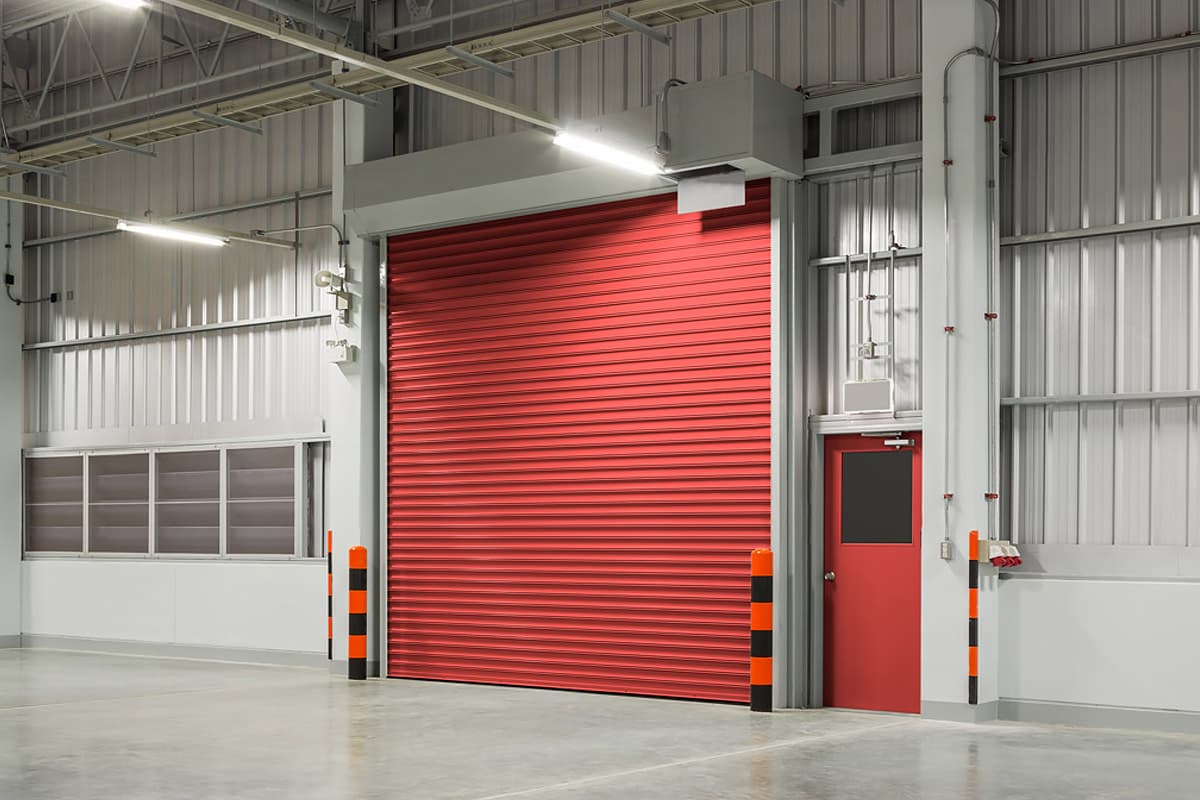
Industrial doors are a critical component in securing workplace safety. With the ability to prevent unauthorized access and shield workers from hazardous environments, these doors play a pivotal role in maintaining an efficient and safe workspace. Various industries rely on these doors to control environmental factors such as temperature, dust, and noise, which can affect both productivity and employee well-being.
Selecting the appropriate industrial door for specific needs enhances its effectiveness in providing safety. There are multiple options available, each designed to address particular challenges within different industries. Such careful selection aids in optimizing safety standards, ensuring a suitable match for the demands of rigorous industrial processes.
Role of Industrial Doors in Workplace Safety
Industrial doors are essential in enhancing workplace security and creating a safe working environment. They serve as crucial barriers against unauthorized entry and environmental hazards.
Preventing Unauthorized Access
Industrial doors play a significant role in deterring unauthorized access. These doors are often equipped with advanced locking systems and access control mechanisms. Features such as biometric scanners and keycard systems ensure only authorized personnel can enter restricted areas. A controlled access environment is vital in industries where sensitive information and valuable assets need protection.
Protecting Against Environmental Hazards
Industrial doors are crucial in shielding workplaces from various environmental hazards. They are designed to withstand extreme weather conditions, such as high winds and heavy rainfall. Insulated doors help maintain temperature control, reducing energy costs and preserving product quality in temperature-sensitive industries. In situations involving hazardous materials or processes, industrial doors can contain spills, emissions, and noise.
Types of Industrial Doors and Their Safety Features
Industrial doors are crucial for ensuring workplace safety, offering protection and efficient access control.
Roll-Up Doors
Roll-up doors are commonly used in various industrial settings. They are designed to roll upwards, saving space and providing easy access. Safety features include automatic sensors that detect obstacles, reducing accidental injuries. The doors are made from durable materials, such as steel or aluminum, enhancing security.
Sectional Overhead Doors
Sectional overhead doors are preferred in warehouses and garages due to their reliability and versatility. They are made of sections connected by hinges, allowing them to slide upwards along tracks. Insulation options are available for temperature control. Installation is slightly more complex but offers greater durability.
Fire-Rated Doors
Fire-rated doors are essential for areas requiring high safety standards. They are designed to withstand fires for a specified period, protecting property and lives. Made from materials like steel, they form a barrier against flames. They include features such as self-closing mechanisms and smoke seals to prevent the spread of fire and smoke.
Through understanding the specific safety features and installation requirements, businesses can select the appropriate door type to maintain a safe environment.
Maintenance and Safety Compliance
Ensuring the safety and efficiency of industrial doors requires both regular inspections and adherence to safety standards.
Regular Inspections and Servicing
Involves routine checks to identify any signs of wear or malfunction. These inspections assess door components such as hinges, locks, and seals. Faulty parts should be promptly repaired or replaced to maintain operational safety. Regular servicing also includes lubricating moving parts and ensuring that safety sensors function correctly.
Compliance with Safety Standards
Compliance with safety standards is mandatory. Industrial doors must adhere to regulations such as OSHA standards. Non-compliance can result in legal penalties and increased accident risks. Regular training for employees on proper door operation is crucial. This ensures that all users are aware of safety protocols and emergency procedures.
Consultation with safety experts may also be beneficial. They can provide insights into maintaining compliance and improving safety measures.
Innovations and Future Trends in Industrial Door Safety
Smart Technology Integration: The incorporation of smart technology in industrial doors is enhancing safety measures significantly. Smart sensors detect obstacles, preventing accidental closures.
Materials and Durability: New materials, such as advanced composites, offer increased durability and reduced maintenance needs. Glass garage doors, when used in industrial settings, contribute not only in aesthetics but also in providing safety with shatter-resistant glass.
Automation and Safety Protocols: Innovations in automation have streamlined safety protocols. Automated doors now come with emergency stop functions, speed control, and customizable settings tailored to different environments.
Energy Efficiency and Insulation: Modern industrial doors are designed to maintain optimal temperatures, reducing energy costs. Insulated doors with robust thermal properties contribute to maintaining workplace safety by ensuring a stable indoor environment.
Regular Safety Updates: Manufacturers regularly update safety standards and integrate new research findings into door designs. This ensures that doors not only comply with regulations but also meet evolving safety needs effectively.
